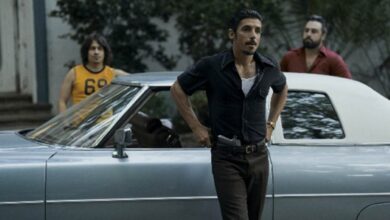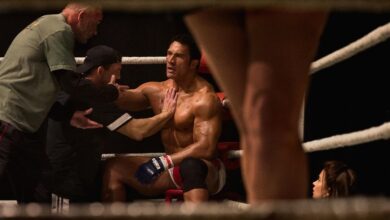5 Documentaries of the Most Complicated Productions in the History of Cinema
Making movies is not easy, and these five documentaries show how a director's dream can also be his worst nightmare. We recommend five documentaries of the most complicated productions in the history of cinema.

Photo: YT-Sony Pictures Classics
LatinAmerican Post | Juan Andrés Rodríguez
Listen to this article
Leer en español: 5 Documentales de las producciones más complicadas en la historia del cine
All directors have projects they dream of doing in such a specific way that it becomes an obsession, and this usually ends in productions so complicated that they are worthy of their movie. Conceived as behind-the-scenes or the rescue of material lost in the archives, these five documentaries show the extremes of love for art.
"The Burden of Dreams" (1982)
Werner Herzog is synonymous with eccentricity. The iconic German director has stood out for his particular methods to authentically portray the difficulties of his protagonists, ambitious subjects with impossible dreams. This took him to the extreme with filming “Fitzcarraldo” (1982), an epic adventure based on Carlos Fitzcarrald, who managed to transport a steamboat, part by part, through the mountains of the Peruvian Amazon in the 19th century during the rubber boom.
The difficulties of filming in the jungle led to Jason Robards being evacuated from the set due to dysentery. They were replaced by Klaus Kinski, with whom Herzog had a productive but complex relationship. What made the film mythical was Herzog's insistence on moving a 320-ton steamship up a steep hill. This feat resulted in accidents for team members and conflicts with indigenous communities.
Herzog invited Director Les Blank to film a documentary about the shoot as a safeguard in case the film could not be completed. It shows the moments of tension intertwined with Herzog's reflections on the themes of his movie, establishing a parallel between the main character and the director.
"Hearts of Darkness: A Filmmaker's Apocalypse" (1991)
A documentary was as iconic as the film it covers. Before being considered one of the best in history, "Apocalypse Now" (1979) was seen as the end of Francis Ford Coppola's career. The film is an adaptation of the classic novel "Hearts of Darkness" by Joseph Conrad to the context of the Vietnam War, which explores the loss of reason in the wild, something that transcended the script to become a reality from the director.
Initially planned for a five-month shoot, it turned into a year-long odyssey braving weather, set destruction, production cost overruns, unprofessionalism, and even death. Eleanor, Coppola's wife, became a chronicler of the events, witnessing how her husband became so obsessed with the play that he risked his fortune to finish the film. The material was supplemented by interviews and edited by Fax Bahr and George Hickenlooper. It is a fascinating story about the dark side of the love of art.
Read also: Chaos takes over the final season of "Succession"
"Lost in La Mancha" (2002)
Although several adaptations have been made, they have yet to stand out for their quality or establish themselves as a movie classic. Some literary works have been found to be particularly complex to bring to the big screen, such as the case of "Don Quixote" by Miguel de Cervantes. But there is one that is very famous for its infamous production: "The Man Who Killed Don Quixote" by Terry Gilliam.
This free adaptation of Don Quixote was a dream that took 29 years. A meta-cinema comedy that places the character in the 21st century, the idea was conceived in the early 90s, and its production was ready for the 2000s with Jean Rochefort and Johnny Depp as protagonists. From the first week, the filming was disastrous, with noise and flooding on location and a herniated disc in Rochefort that forced him to withdraw, which meant the end of filming.
Keith Fulton and Louis Pepe had made a "12 Monkeys" documentary and asked to accompany the director on his new project. The success of his film about the disastrous production was vital for Gilliam to finance the movie again and finally release it in 2018. However, it failed at the box office due to distribution problems. The duo made a sequel to the new shoot entitled "He Dreams of Giants" (2021).
"The Shark is Still Working" (2007)
Steven Spielberg showed what he was made of when, at age 26, he directed his second film, "Jaws" (1975), with a peculiarity: it would be the first production of a powerful studio shot in the ocean. This inevitably led to complications, delays, and cost overruns, primarily due to failures of the titular shark's mechanical replica. Spielberg's solution was to work with John Williams on an ominous theme that indicated the presence of the animal, today one of the most iconic leitmotivs in cinema.
Since its premiere, the film became a milestone, marking the beginning of a new era of Hollywood blockbusters, which is why it has been the focus of many documentaries. The one from Erik Hollander stands out, who collects testimonials from the team (which includes Spielberg) and analyzes his legacy in the industry.
"Jodorowsky's Dune" (2013)
Although the title of "best movie ever filmed" is well competed for, Alejandro Jodorowsky's adaptation of "DUNE" is a strong contender. Before Denis Villeneuve's successful 2021 version and David Lynch's disastrous 1984 version, in 1971, the Chilean director embarked on a project of monumental scale to bring Frank Herbert's novel to the cinema. The cast comprised Orson Wells, Amanda Lear, Mick Jagger and Salvador Dalí, and Pink Floyd performed the music. The budget was constantly increasing, and funding was complicated by insistence on the length needed to deal with the book's mythology, so rights expired.
Frank Pavich's documentary recounts the team and reveals the conceptual art of cartoonist Moebius, with more than 3,000 drawings that inspired several 80s science fiction classics. These were also the basis for Jodorowsky's comic "El Incal," which Taika Waititi will adapt.




